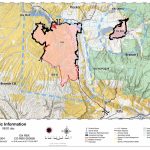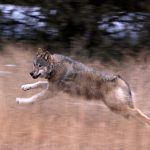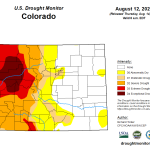Rep. Jeff Hurd is talking to the White House, Interior Secretary about Colorado wolf reintroduction
The Western Slope lawmaker
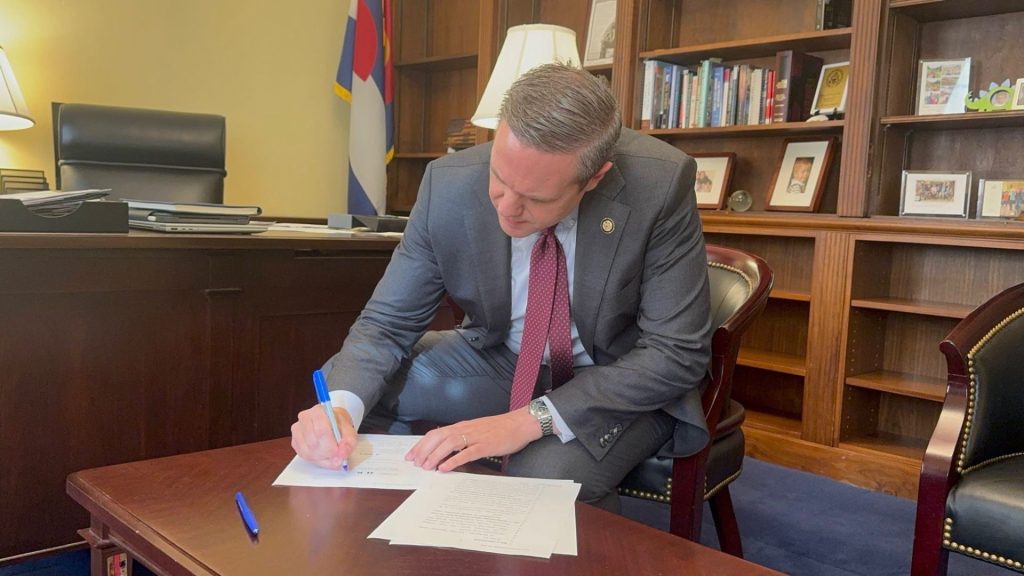
Jeff Hurd/Courtesy Photo
Wolves are a topic that Colorado Rep. Jeff Hurd hears about frequently.
Hurd is a Grand Junction-based Republican representing Colorado’s 3rd Congressional District, which spans most of the Western Slope and many of the areas where wolves have settled during the first 21 months of the state’s wolf reintroduction.
“It ranks among the top issues that I hear, particularly from our agricultural producers,” Hurd said.
When it comes to wolves, much of what Hurd is hearing is rooted in economic concerns. This includes “not only the loss of the (livestock), but loss of breeding potential, stress-induced weight loss and time spent on reporting and paperwork,” he said.
“Ranchers in Colorado’s 3rd District already faced thin margins,” Hurd said, adding that they’ve faced continued stress from not only wolves but also factors like wildfires and water.
“The fundamental frustration I hear is that this is an unfair burden on rural Colorado and that wolves are being introduced largely because of votes from urban, Front Range counties,” Hurd said. “Yet it’s the ranchers in rural Coloradans that have to shoulder the economic, emotional and practical costs of this forced reintroduction.”
While Colorado’s wolf reintroduction is a state-led program that was passed by voters in 2020, Hurd has been working to find solutions in Washington, D.C.
“The issue of wolves is something that’s unnecessary. It’s antagonizing the people that I represent,” Hurd said. “I think to the extent that there are federal issues that are implicated, there should be federal solutions that we look at as well.”
Hurd sees two potential issues that merit congressional or federal action: the international import of wolves to Colorado and the listing of gray wolves under the Endangered Species Act.
International import of wolves
In January, Colorado Parks and Wildlife completed its second release of the reintroduction effort, bringing 15 wolves from British Columbia and releasing them in Pitkin and Eagle counties.
Immediately following the animals’ release, Hurd joined his Colorado Republican colleagues — Reps. Lauren Boebert, Jeff Crank and Gabe Evans — in decrying the import of the wolves from out of the country.
In a joint statement, the lawmakers said “bureaucrats in Colorado have rushed through the importation of Canadian gray wolves and have set them loose in our state despite numerous protests and questions about the legality of this dysfunctional and chaotic approach.”
In the months since, Hurd has continued to fight against the future import of wolves from outside the United States.
“I’ve been in direct discussions with the White House and with the Secretary of the Interior about options that we may have to limit the forced translocation of wolves from Canada,” Hurd said.
Hurd claimed their translocation was not vetted properly and “we don’t know exactly what the effects are of reintroducing these wolves here into western Colorado.”
“Wolves were returning to Colorado from Wyoming, and forced reintroduction is unnecessary in the circumstances that we found ourselves already,” Hurd added, referring to the entire reintroduction as “a very rushed process to bring these wolves into Colorado.”
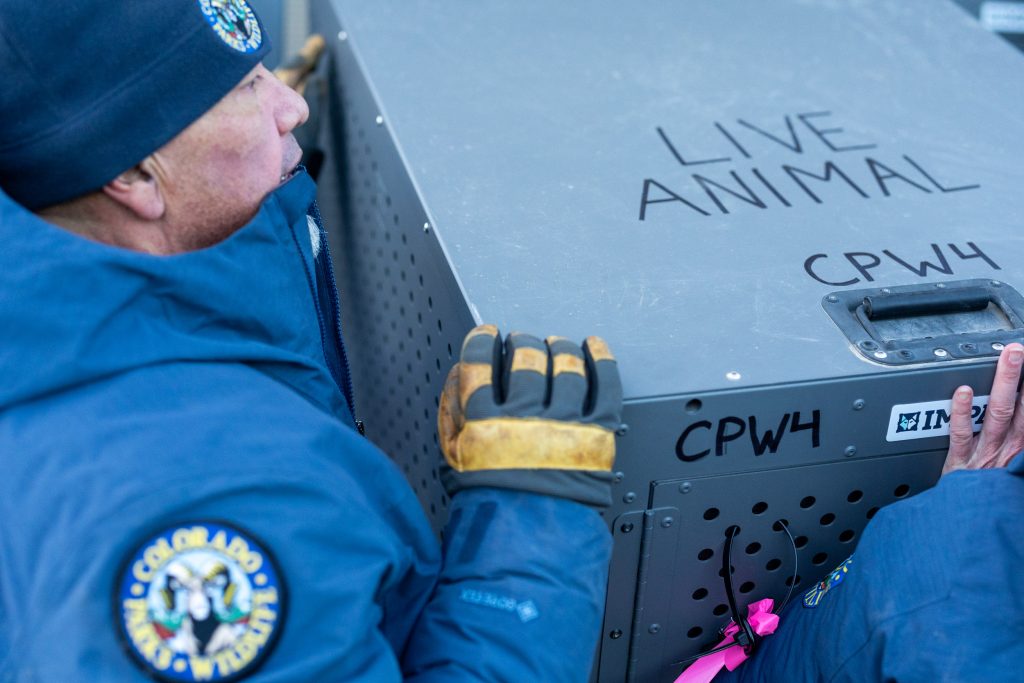
Colorado Parks and Wildlife had an agreement with the B.C. Ministry of Water, Land and Resource Stewardship to obtain the 15 wolves this year, which Parks and Wildlife indicated had no biological differences from the 10 wolves brought from Oregon in December 2023. Upon release, Parks and Wildlife confirmed the animals went through customs and had the appropriate permits and inspections, and reported there were no federal quarantine requirements for wolf reintroductions.
Wolves from Canada were also used in the Yellowstone National Park and Idaho reintroduction efforts.
Changing the protection of wolves
Gray wolves are listed as an endangered species under the federal Endangered Species Act in 44 states, including Colorado. This status protects gray wolves from being harassed, harmed or killed in these states. When Colorado began its reintroduction effort, it received a special rule from the U.S. Fish and Wildlife Service, which allows Colorado Parks and Wildlife to kill wolves in certain circumstances, including livestock depredations.
Changing the federal protection status of gray wolves in Colorado would not end the state’s reintroduction efforts, but it would invalidate the special rule. Management of wolves in the state would continue to be driven by Parks and Wildlife and its wolf plan.
For many years, the protected status of gray wolves has been somewhat of a political ping-pong game. Most recently, the Fish and Wildlife Service moved to delist gray wolves in November 2020. The rule went into effect in 2021, but, after being legally challenged by environmental groups, was overturned by a federal district court in California. Wolves were relisted in 2022. Under the Biden administration, the service appealed the decision, seeking to delist them again. The case is ongoing.
Concurrently, environmental groups took to court to get the federal government to consider relisting gray wolves in the Northern Rocky Mountains — a region defined as Montana, Idaho, Wyoming, eastern Washington, eastern Oregon, and north central Utah. Wolves were delisted in this region following recovery efforts, but it’s a decision that has also seen a bit of back and forth. The environmental groups recently secured a win, with a federal judge in Missoula ruling that the Fish and Wildlife Service must reconsider a petition to relist the Northern Rockies wolves, which it previously denied.
Right now, a bill that would remove wolves from the Endangered Species Act and turn management back onto the states is making its way through Congress. The “Pet and Livestock Protection Act” was introduced by Boebert and Wisconsin Republican Rep. Tom Tiffany. It passed the House Committee on Natural Resources in April and will make its way to the House floor.
Hurd is one of the original co-sponsors of the bill.
“Delisting the gray wolf on the Endangered Species Act will allow for more autonomy and control when it comes to managing those wolf populations here on the ground in Colorado,” Hurd said.

Support Local Journalism

Support Local Journalism
Readers around Glenwood Springs and Garfield County make the Post Independent’s work possible. Your financial contribution supports our efforts to deliver quality, locally relevant journalism.
Now more than ever, your support is critical to help us keep our community informed about the evolving coronavirus pandemic and the impact it is having locally. Every contribution, however large or small, will make a difference.
Each donation will be used exclusively for the development and creation of increased news coverage.


